Bergische University
Wuppertal "first-year students" start the winter semester
Joint kick-off sets new impulses
Today's joint welcome event traditionally marks the start of Welcome Week, before the new arrivals set off to the numerous information and familiarisation events organised by their future student councils. The programme once again included exciting interviews, short films, tips on the extensive range of advice, cultural and leisure activities offered by the university and the city, as well as performances by the UNI choir and orchestra. With his keynote speech on the fascination of studying, Philipp Trotter, Professor of Sustainability Management, reported this time on his very personal motivation to dedicate himself to sustainable management in a global world in which material goods are so unequally distributed. The event was hosted by Dr Christine Hummel, Head of Central Student Guidance and Counselling Services, together with student Michelle Unterberg, who manages their Instagram channels.
Constant demand
Following the generally declining numbers in the academic years 2019 to 2022, the University of Wuppertal now appears to have once again succeeded in achieving a slight increase in the number of first-year students in 2023. Humanities degree programmes, such as educational science courses, continue to enjoy stable high demand. The 480 places on the primary school teaching degree programme were also successfully filled once again - following the creation of 80 additional places last year. It is also pleasing to note that demand for the undergraduate Bachelor's degree programmes in economics has risen again slightly. In addition, the launch of the new German-language degree programme "Smart and Sustainable Systems", which deals with networked, smart technologies and systems, was a success. The combination of sustainability and technology has particularly appealed to female first-year students, 50 per cent of whom are enrolled on this STEM degree programme.
More graduates - falling overall figures
A total of over 19,970 people are currently studying at the University of Wuppertal, 55 per cent of whom are women. The fact that the total number in Wuppertal is falling despite demand remaining relatively constant is partly due to the number of graduates. At present, it is mainly the numerically strong cohorts who are completing their studies at the University of Wuppertal. Added to this is the ongoing shortage of skilled labour. With the exception of the "Master of Education", the sharpest decline has been recorded in the Master's degree programmes. This is particularly noticeable among Bachelor's graduates in the STEM fields, who are currently more likely to enter the labour market directly instead of opting for a subsequent Master's degree.
Further figures, data and facts for 2023 as well as time series on specific topics can also be found in the current Rectorate Report.
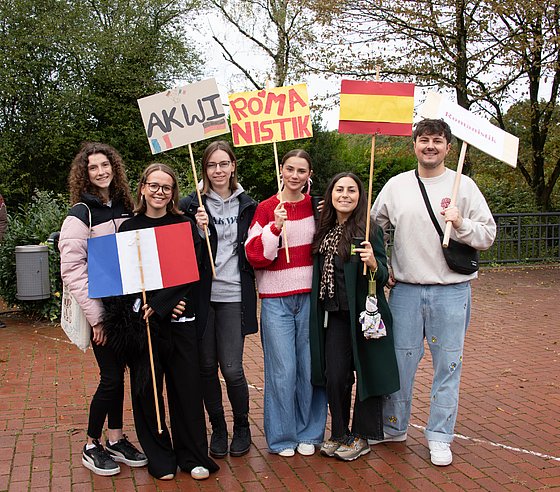
The student councils welcomed the new first-year students in front of Uni-Halle.
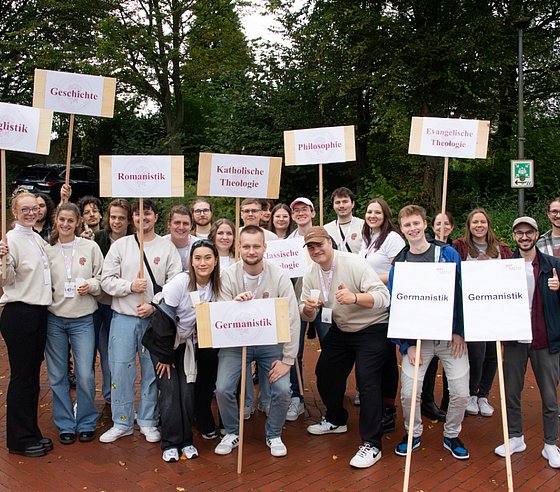
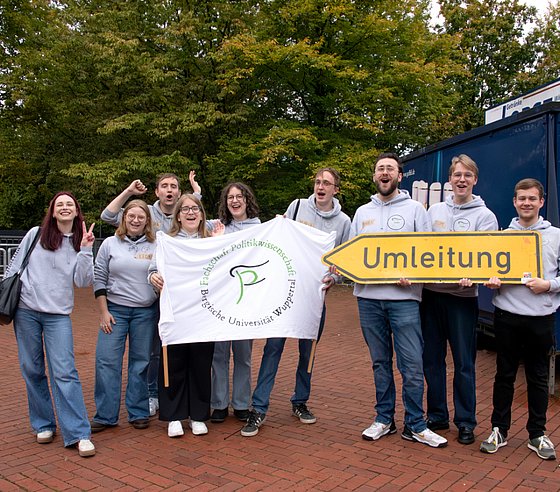
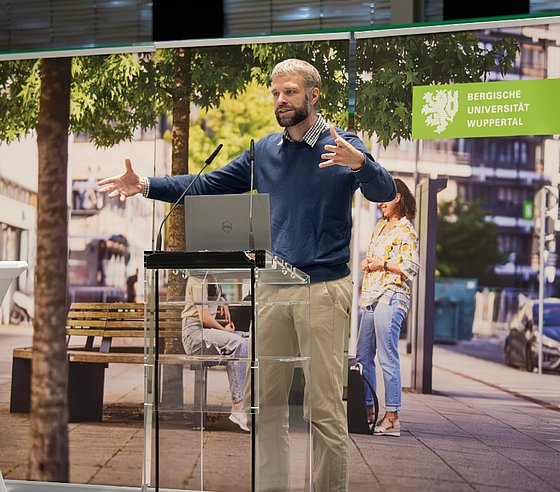
Prof Philipp Trotter spoke about the fascination of studying.
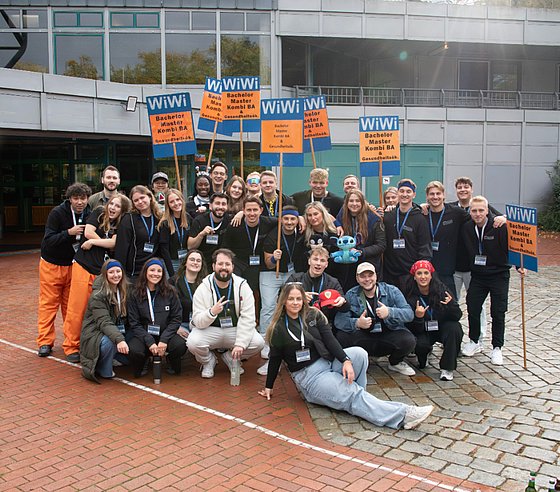
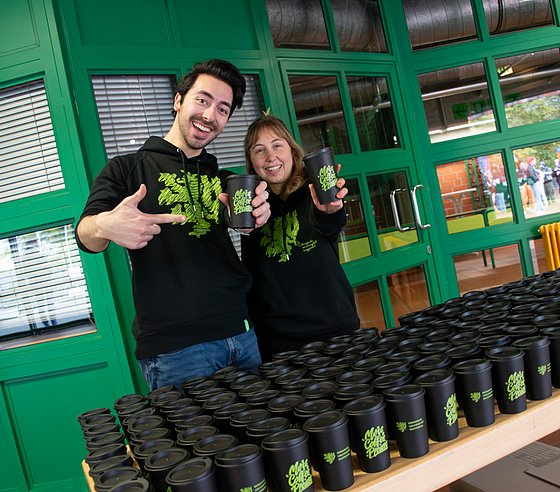
One to go, please! All first-year students were given a coffee-to-go mug plus a coffee voucher.
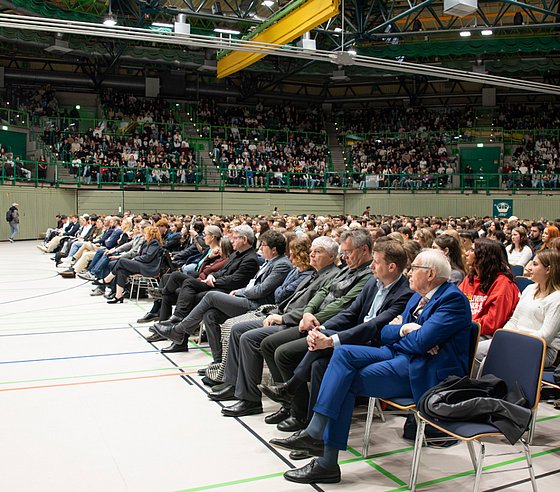
The rows of seats were well filled: Numerous guests also attended the welcoming ceremony in the Uni-Halle.
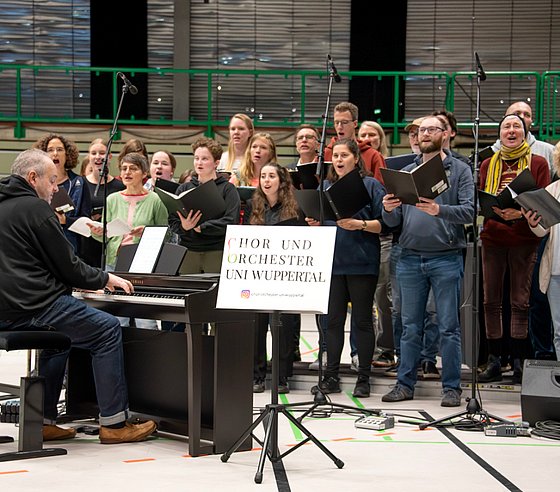
Musical welcome by the UNI Choir.
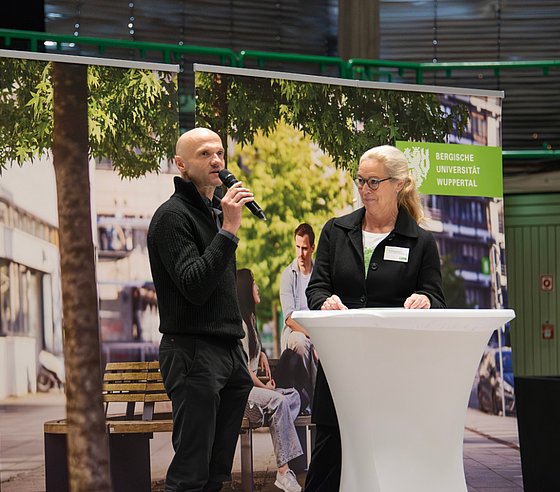
Thomas Braus, Director of Drama at Wuppertaler Bühnen, in conversation with ZSB Director Dr Christine Hummel.

The UniSport team and mascots were also on hand to welcome the new students to the university.
